Deutsche Grammophon Announces Four New Original Source Vinyl Releases
Classic 1970s Recordings by DG’s Biggest Stars get the Emil Berliner Studios AAA Sonic Upgrade
While those of us who have been collecting this series are currently salivating at the prospect of the August release of Herbert von Karajan’s complete Bruckner Symphony cycle with the Berlin Philharmonic (cut directly from original digital and 8-track analogue master tapes), these four new releases provide plenty to be excited about as a post-Bruckner dessert - something a little lighter to cleanse the palette.
Here’s the breakdown.
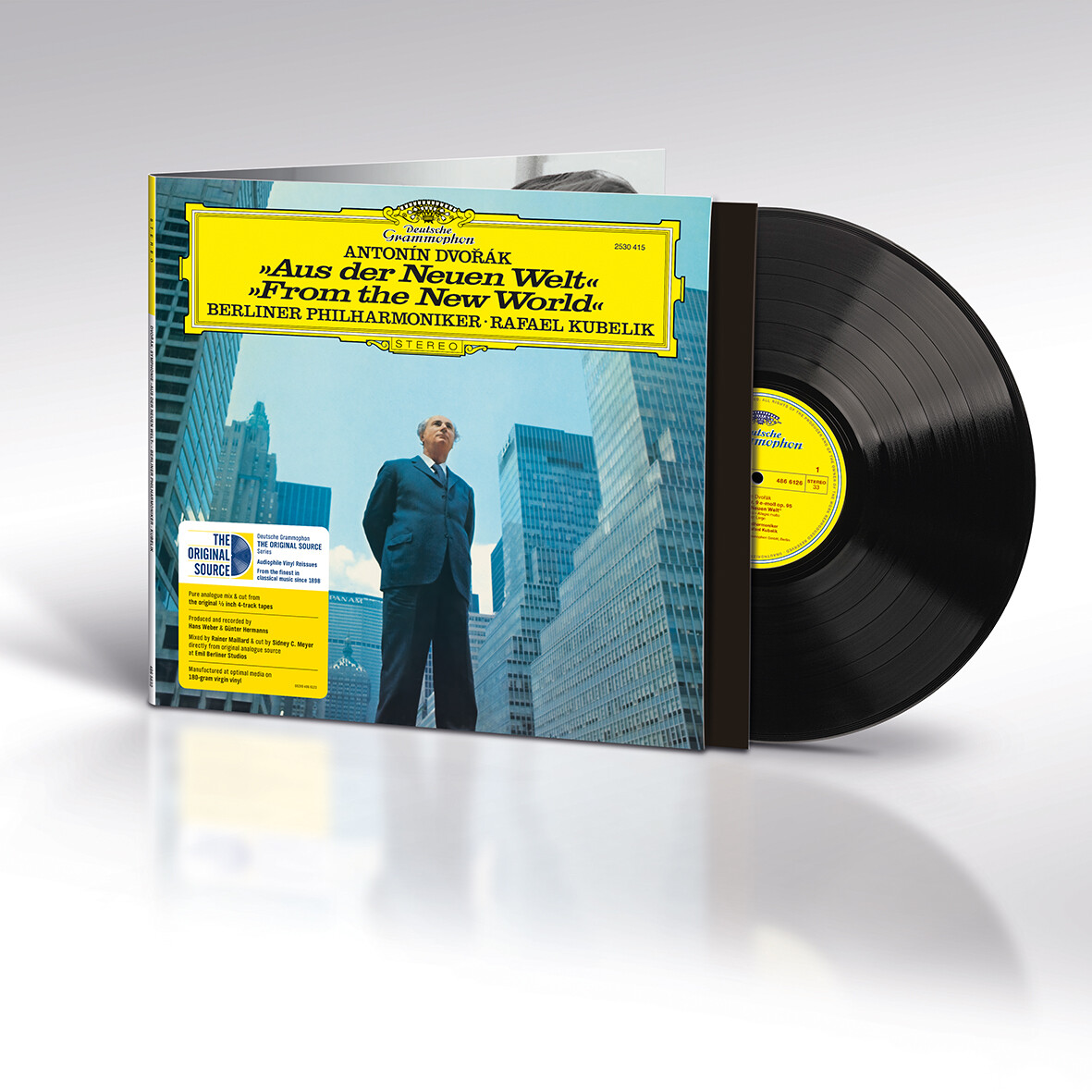
Here’s a no-brainer: the great Czech conductor Rafael Kubelik’s benchmark version of Dvorak’s ubiquitous “New World” Symphony, part of his complete cycle of all the symphonies made with the Berlin Philharmonic Orchestra in the late 1960s/early 70s. Along with Istvan Kertesz’s contemporaneous cycle with the London Symphony Orchestra on Decca (graced with gorgeous cover work and vintage Decca sonics - very much worth collecting), this was the go-to for these works in the heyday of classical vinyl.
A few years back, Emil Berliner Studios remixed/remastered the whole of Kubelik’s cycle for DG’s Single Layer SACD reissue series, released in Japan, which represented a huge step-up in sonic quality over any previous incarnation. I spin it regularly when I want a Dvorak fix.
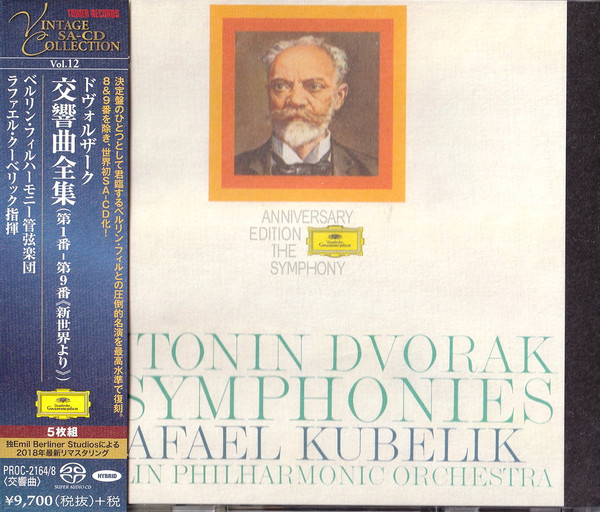
This performance of the 9th - one of the most popular works in the entire orchestral repertoire - is, like I say, still some 50 years later a benchmark. I cannot wait to hear how EBS reveal it in all its analogue glory. It will be especially interesting to compare it to the D2D recording of the same symphony made a year ago by the same EBS team of Maillard and Meyer with the Bamberg Symphony Orchestra for Accentus, and given a glowing review by MF here.
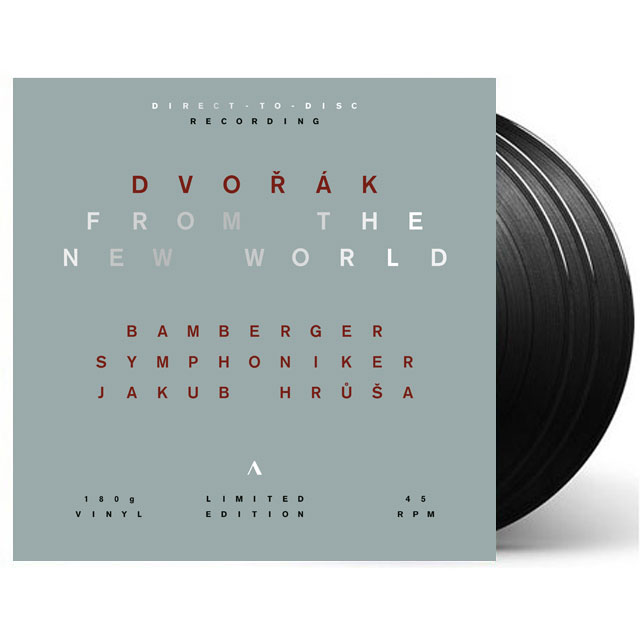
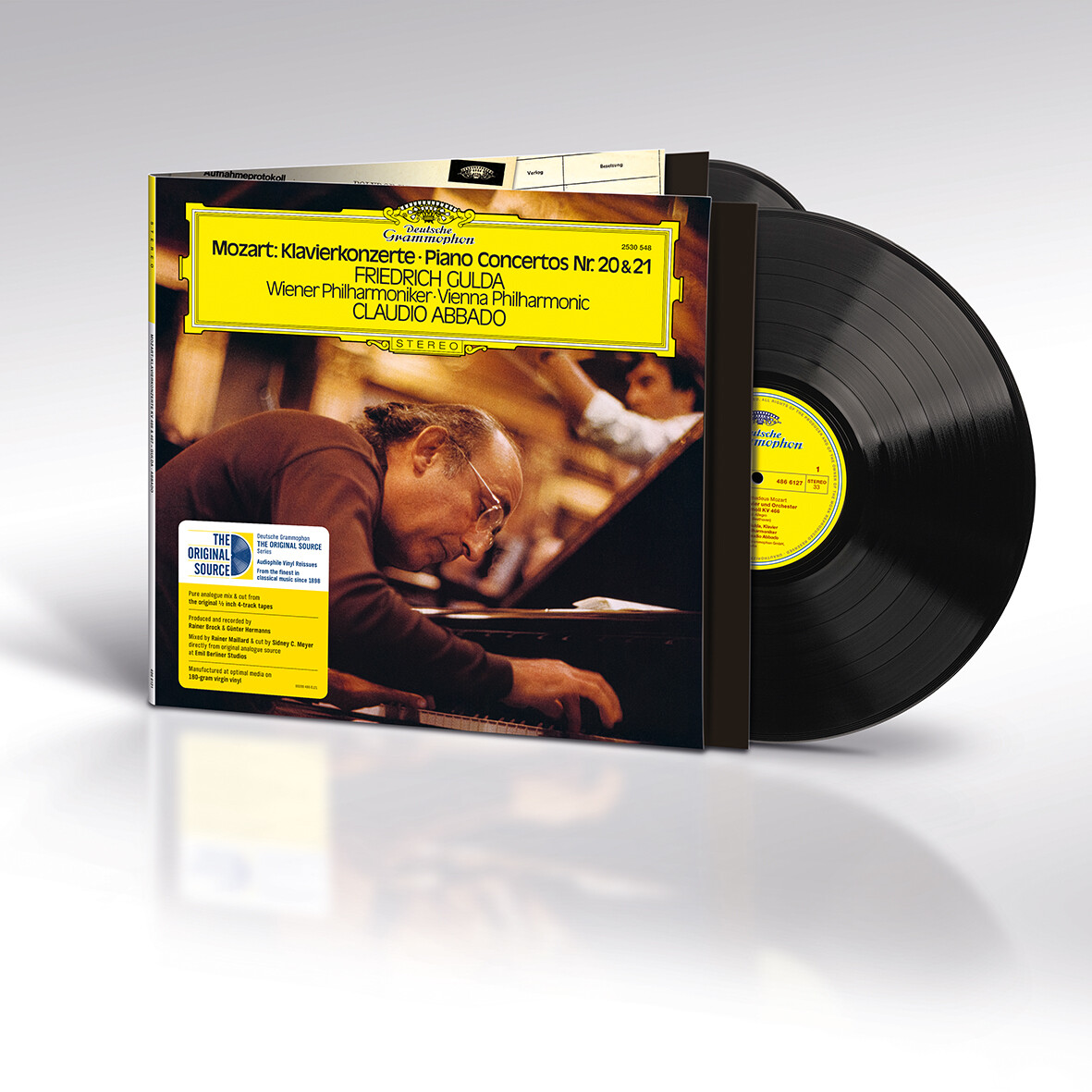
Next up, the second of Friedrich Gulda’s pair of albums dedicated to Mozart Piano Concertos recorded with Claudio Abbado and the Vienna Philharmonic. I must confess I am not overly familiar with these recordings, though I have long admired Abbado’s later recordings of Mozart with Maria João Pires. My colleague here at TA, Michael Johnson, gave a very warm reception to the first album from Gulda and Abbado in this series, of Piano Concertos Nos.25 and 27, while observing a few very minor shortcomings. He rightly noted that there are few “audiophile” recordings on vinyl of this repertoire (apart from vintage Deccas and EMIs of variable quality), and so for DG to reissue these in the Original Source series is most welcome.
Friedrich Gulda is a fascinating figure in 20th century pianism, something of an iconoclast, as MJ points out in his review - as much as home in jazz as classical. His Mozart was always well regarded, and Mozart enthusiasts - plus those wishing to explore this beautiful repertoire - need not hesitate.
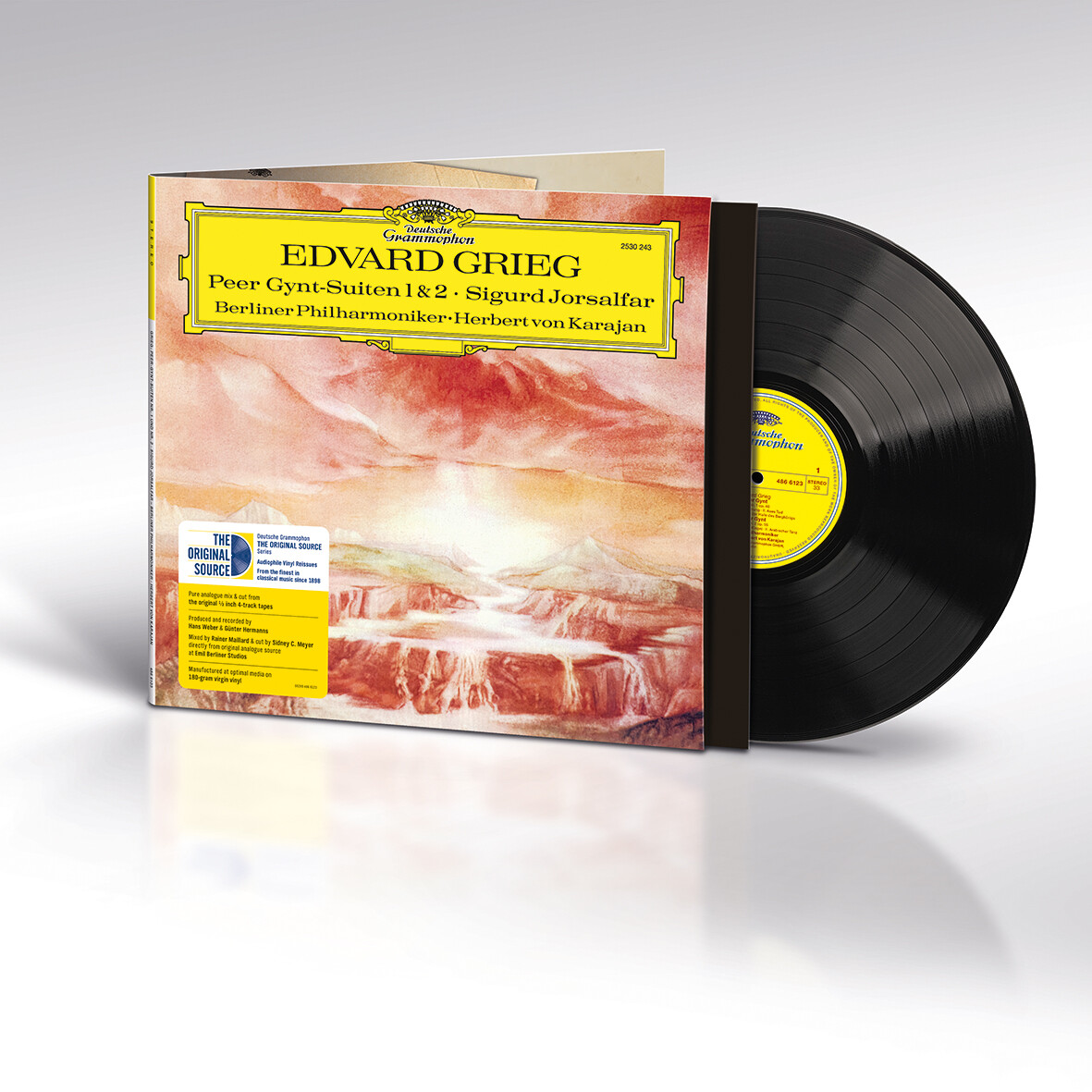
The third title being offered here is a bit of a surprise: Karajan’s 1973 recording of another classical mainstay - the two suites from Grieg’s orchestral music for Peer Gynt. This is music he had already recorded in 1961 for Decca, one of his wonderful series of albums with the Vienna Philharmonic Orchestra recorded by Decca in the Sofiensaal, produced by John Culshaw. He also set down the suites in the 1980s in a digital rendering.
Now, classical collectors and audiophiles will probably already have in their collections some iteration of the classic 1958 Decca recording of the more-or-less complete incidental music recorded by Øivin Fjeldstad and The London Symphony Orchestra. It’s a true gem.
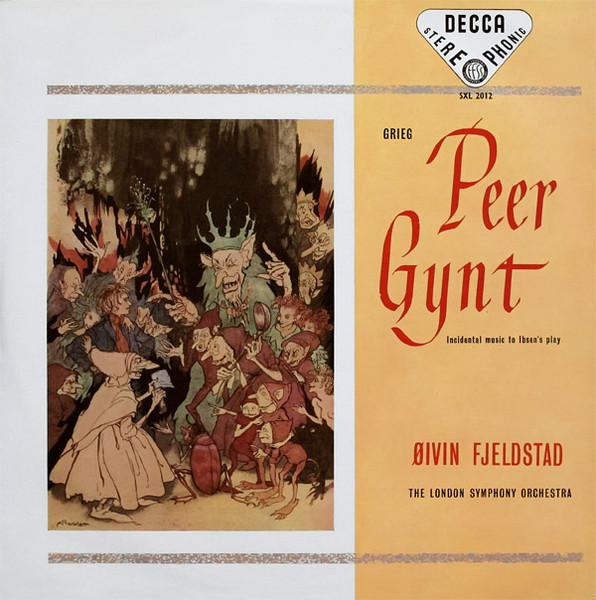
So why bother with this Karajan version of just the suites?
Well, one reason right off the bat is the flute playing of then Principal Flautist James Galway, which you will hear on the opening track “Morning” - a gorgeous melody you will be familiar with even if you did not know where it came from. Silky, silvery yet warm, Galway’s flute playing is one of the most immediately recognizable and beguiling sounds in all of recorded classical music - and the reason why Galway upped sticks a couple of years later for a lucrative solo career, much to Karajan’s chagrin.
Another reason to seriously consider this album is simply that Karajan always did this music really well. He seemed to have a real affinity with composers from Scandinavian climes, as evinced by this and his fine recordings of Sibelius and Nielsen. And the Berlin Phil are on characteristically lush form.
The final reason why any seasoned collector (as well as the classical newbie) should seriously consider this release is the inclusion of an unusual coupling: music from another play, Sigurd Jorsalfar. This is far from mainstream repertoire, and to hear it done by the Berliners and Karajan on top form is a real treat.
As with all Karajan LPs of this period, the sonics on the original LPs left something to be desired - although this was one of the better ones. I am really looking forward to hearing the characteristic sonic upgrade we’ve come to expect from the Original Source series. This has the potential to be the sleeper hit from this batch of releases.
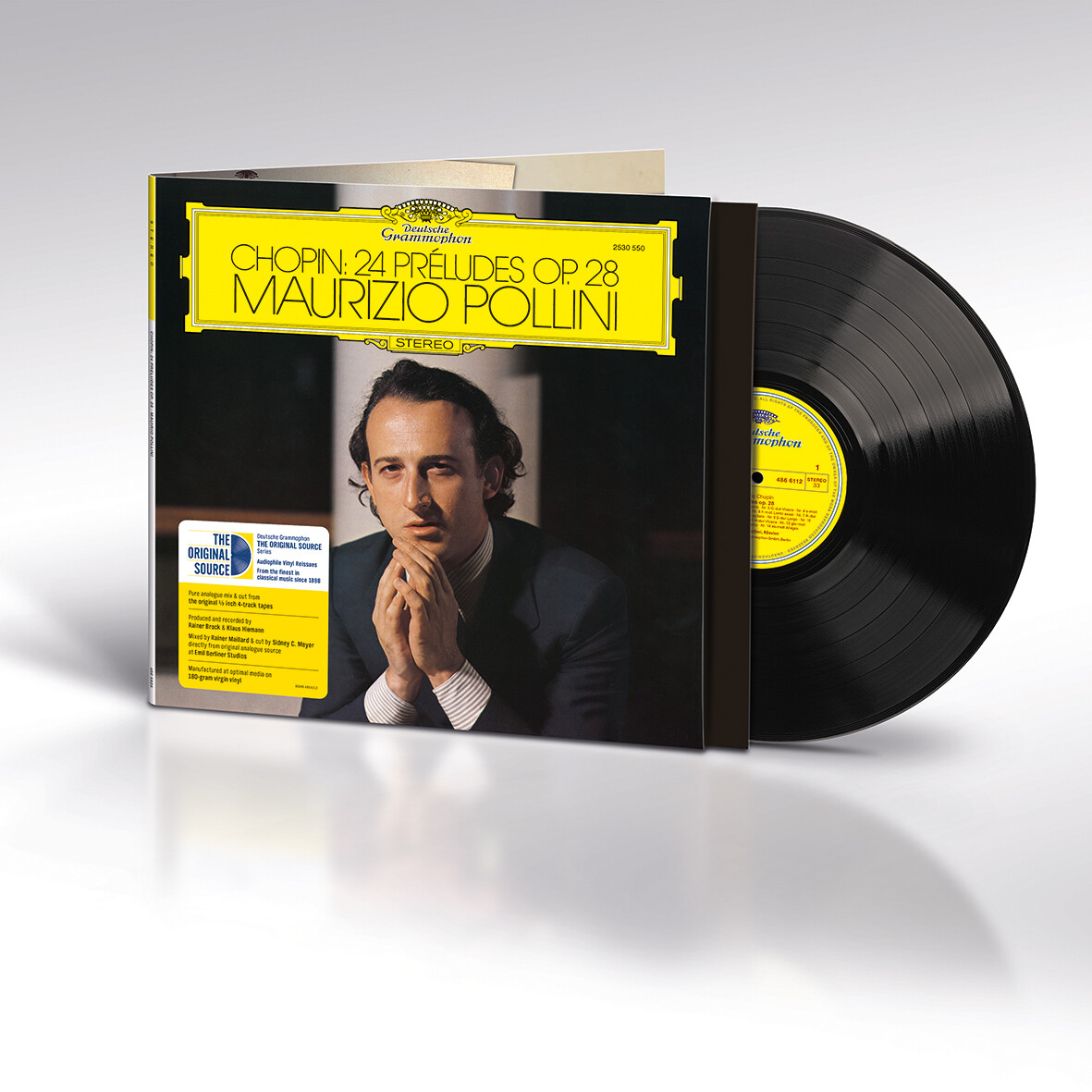
However, the record I am most excited about is this final one: Maurizio Pollini’s benchmark recording of Chopin’s Piano Preludes, op. 28, released in 1973. Pollini simply was - for this listener - one of the greatest of all pianists, and his recorded legacy, nearly all on DG, is stuffed to the gills with classic recordings. His Chopin was at the core of his repertoire, and this record was one of three (the others were of the Études and Polonaises) with which DG firmly established his position in the Chopin firmament. After his recent death, I published this tribute on my YouTube channel.
I am particularly excited about this release because the piano sound on all of Pollini’s records, especially in the 70s, could sound a little thin on the original releases. He was famous for traveling to the studio and concert halls with his own personal piano technician who would adjust the instrument precisely to Pollini’s liking. I have often questioned whether the sonic results were ideal. I have heard a snippet of this Original Source remastering, albeit via a video clip, and it sounds incredible. A “don’t-even-think-about-it” essential purchase for all.
As far as I am concerned, DG could work their way through Pollini’s entire 1970s catalogue and give it the Original Source upgrade, and every album would be a mandatory purchase. But let me just mention here his solo albums of Schoenberg, Stravinsky and Prokofiev, Webern and Boulez, the late Beethoven Piano Sonatas, and the concerto albums he made with Karl Bohm of Beethoven’s 3rd, 4th, and 5th, Mozart’s Concertos 19 and 23, plus the Bartok Concertos 1 and 2 with Abbado. I can but dream…
It’s great to see another album of solo piano music in this series, the first since Gilels’s Beethoven sonata disc. I hope we will get plenty more of this repertoire, plus chamber music please. In this latter category I wonder if the fantastic version of Schubert’s String Quintet with the Melos Quartet and Rostropovich was recorded to 4-track…
But remember, everybody: now that EBS has the ability to master and cut directly from 8-track, this opens up many, many exceptional recordings to the Original Source treatment. The prospects are drool worthy…
My sense (or should I say hope) is that as long as we keep buying them, DG will keep making them.
A quick reminder. Quite a few previous titles are still available on the DG/Universal US Shop site here, including the Steinberg box at a reduced price and the first four title represses - all worth acquiring. (Full reviews are on this site).
Currently pre-orders for this new October batch are only available on the DG German Official Store site, but no doubt they will become available soon at Acoustic Sounds and Elusive Disc - cheaper for US customers - as well as at Center Stage Classical.


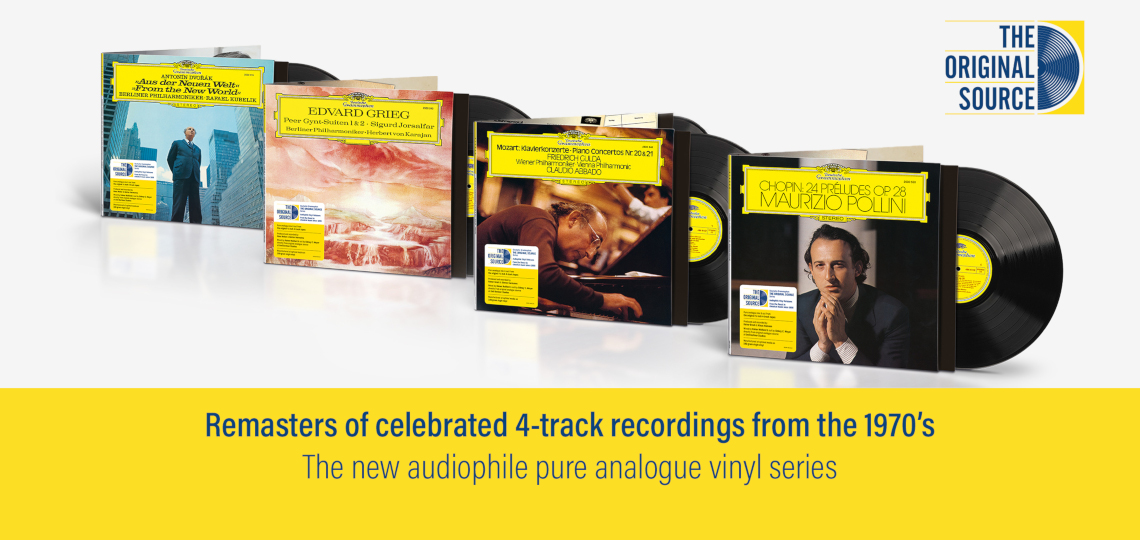





































.png)








